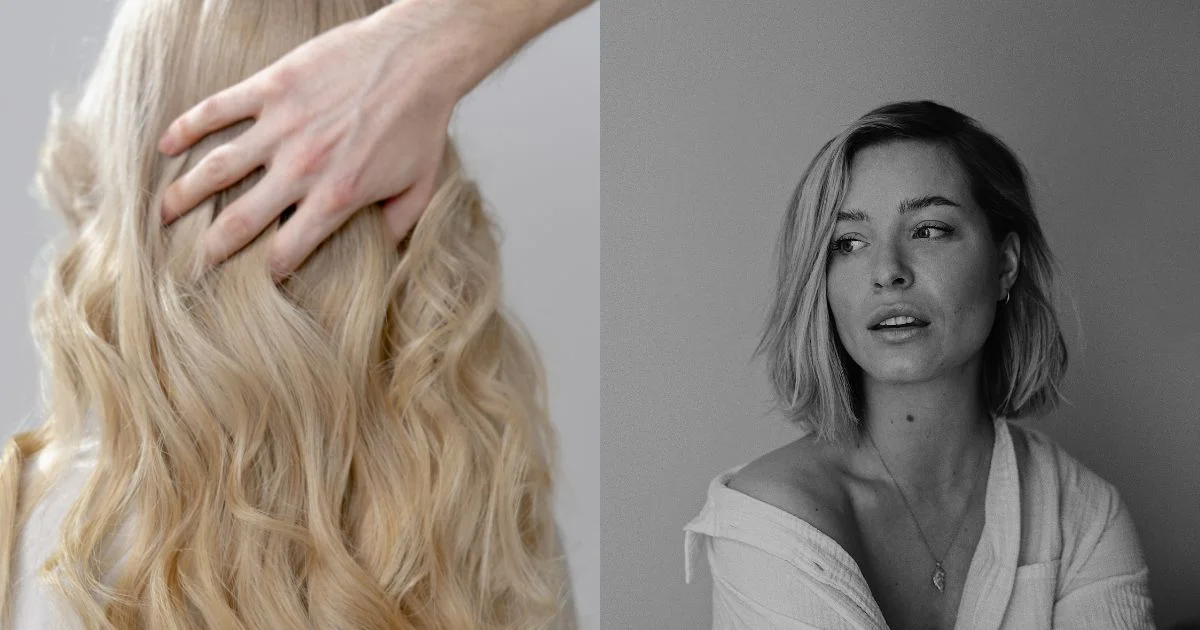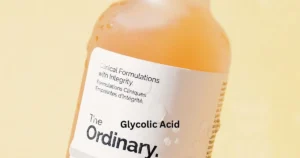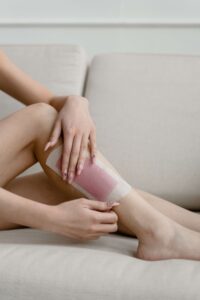White hair is a natural part of the aging process, but when it appears at an early age, it can be a cause of concern and frustration. Premature graying, or the loss of hair pigmentation before the expected age, can affect both men and women, leading to self-consciousness and a desire to understand the underlying causes.
While genetics and age are common factors contributing to white hair, there are several other potential reasons for its early onset. Factors such as nutritional deficiencies, stress, lifestyle choices, medical conditions, and environmental influences can all play a role in the premature graying of hair.
In this article, we will explore in detail the various factors that can cause white hair at an early age. By understanding these causes, we can gain insights into prevention and management strategies, as well as learn to embrace and accept the natural changes that come with aging. So, let’s delve deeper into the fascinating world of premature graying and uncover the mysteries behind its occurrence.
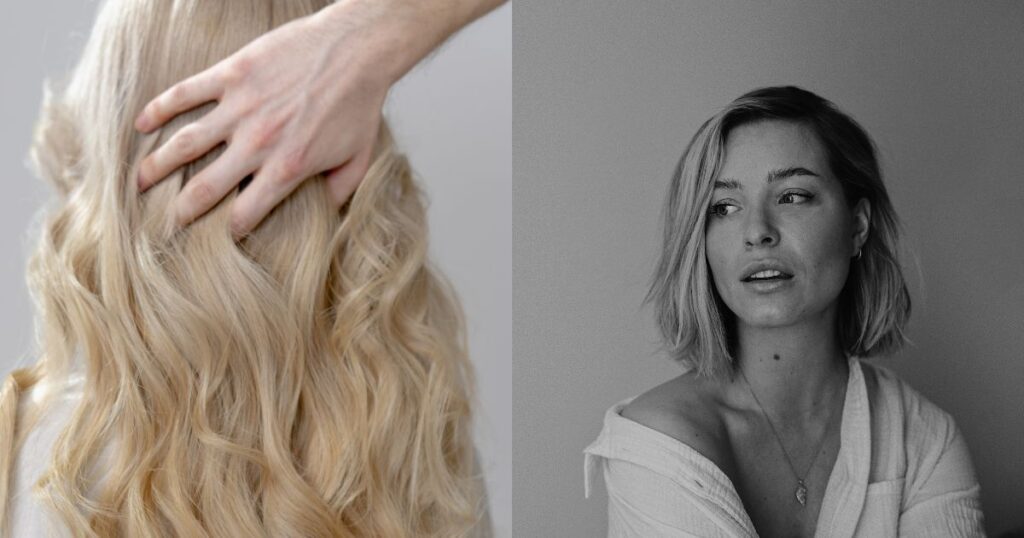
Factors Causing White Hair
Premature graying can be attributed to several factors that affect the production of melanin, the pigment responsible for hair color. Understanding these factors is crucial in addressing the issue effectively.
1.Genetic Factors
Genetics play a significant role in determining when and how hair turns gray. If premature graying runs in your family, you may be more prone to experiencing white hair at an early age. Specific genes are associated with premature graying, and variations in these genes can influence the timing and extent of hair pigmentation loss.
2.Nutritional Deficiencies
Inadequate nutrition can contribute to premature graying. Nutrients such as vitamin B12, vitamin E, copper, and iron play essential roles in maintaining healthy hair pigmentation. Deficiencies in these nutrients can disrupt melanin production and accelerate the graying process. Ensuring a balanced diet rich in these nutrients is crucial for maintaining vibrant hair color.
You may also like.Does Creatine Cause Hair Loss? Debunking the 3 Myths
3.Stress and Lifestyle Factors
Chronic stress and unhealthy lifestyle choices can impact the health of your hair, leading to premature graying. Stress triggers the production of free radicals that can damage melanocytes, the cells responsible for producing melanin. Additionally, habits like smoking and excessive alcohol consumption can accelerate the graying process by causing oxidative stress.
4.Medical Conditions
Certain medical conditions can contribute to premature graying.
Thyroid disorders, such as hypothyroidism and hyperthyroidism, can disrupt the normal functioning of the thyroid gland, affecting melanin production.Autoimmune conditions like vitiligo and alopecia areata can also result in the loss of hair pigmentation.
5.Environmental Factors
Environmental factors, such as exposure to air pollution and chemicals, can affect hair pigmentation. Airborne pollutants and toxins can accumulate on the scalp and
interfere with melanin production, leading to premature graying. Chemical exposure from hair treatments, such as excessive use of hair dyes and harsh styling products, can also contribute to hair discoloration.
Understanding Melanin
To comprehend the causes of white hair at an early age, it is essential to understand the role of melanin in hair color. Melanin is a pigment produced by specialized cells called melanocytes. It comes in two forms: eumelanin, which is responsible for brown to black hair color, and pheomelanin, which contributes to red and blonde shades.
As we age, the activity of melanocytes decreases, resulting in a decline in melanin production. This natural aging process gradually leads to the loss of hair pigmentation, causing hair to turn gray and eventually white.
Genetics and White Hair
Genetics plays a significant role in determining the timing and extent of graying hair. If your parents or close relatives experienced premature graying, there is a higher likelihood that you might also experience it at an early age. Variations in certain genes, such as the IRF4 gene, have been associated with premature graying.
In some cases, genetic conditions like segmental or generalized vitiligo, Werner syndrome, and certain premature aging syndromes can cause white hair to appear earlier than usual. These conditions often involve underlying issues with melanin production or accelerated aging processes.
Nutritional Deficiencies
A well-balanced diet rich in essential nutrients is vital for maintaining healthy hair pigmentation. Nutritional deficiencies can disrupt melanin synthesis and contribute to premature graying. Here are some key nutrients linked to hair color:
Vitamin B12: Deficiency in vitamin B12 has been associated with premature graying. It is crucial for the production of red blood cells, which transport oxygen and nutrients to the hair follicles.
Vitamin E: This antioxidant vitamin helps protect the hair follicles from oxidative stress and supports healthy melanin production.
Copper: Copper is involved in the synthesis of melanin. A deficiency in copper can impact melanin production and contribute to premature graying.
Iron: Iron deficiency anemia can affect hair health and contribute to hair discoloration. Iron is necessary for optimal oxygen transport to the hair follicles.
Ensuring an adequate intake of these nutrients through a balanced diet or supplements can help maintain vibrant hair color and delay premature graying.
Stress and Lifestyle Factors
Chronic stress and unhealthy lifestyle choices can have a detrimental impact on hair health, including premature graying. Stress triggers the release of cortisol, a hormone that can disrupt the normal functioning of hair follicles and melanocytes.
Additionally, habits like smoking and excessive alcohol consumption can accelerate the graying process. These lifestyle choices contribute to oxidative stress, causing damage to the cells involved in melanin production.
Managing stress through techniques like meditation, exercise, and self-care can help mitigate its impact on hair pigmentation. Making healthier lifestyle choices, such as quitting smoking and moderating alcohol consumption, can also promote overall hair health.
Medical Conditions
Certain medical conditions can contribute to the appearance of white hair at an early age. Some of the notable conditions include:
A.Thyroid Disorders: Thyroid imbalances, such as hypothyroidism (underactive thyroid) or hyperthyroidism (overactive thyroid), can disrupt the normal functioning of the thyroid gland. Thyroid hormones are crucial for hair pigmentation, and any disturbances in their levels can lead to premature graying.
B.Autoimmune Conditions: Autoimmune disorders like vitiligo and alopecia areata can affect melanocytes, leading to depigmentation of the hair. These conditions cause the immune system to mistakenly attack healthy cells and disrupt melanin production, resulting in white hair patches or overall premature graying.
If you suspect that a medical condition is causing your premature graying, it is essential to consult with a healthcare professional who can evaluate your symptoms and provide appropriate diagnosis and treatment options.
Environmental Factors
Environmental factors can also contribute to premature graying. Some notable factors include:
A .Air Pollution: Exposure to air pollution, including pollutants like particulate matter and chemicals, can have a negative impact on hair health. These pollutants can accumulate on the scalp, causing oxidative stress and interfering with melanin production.
B. Chemical Exposure: Excessive use of hair dyes, bleaching agents, and harsh styling products can damage the hair follicles and disrupt melanin synthesis. The chemicals present in these products can strip away natural pigmentation, leading to premature graying.
Taking measures to protect your hair from environmental pollutants, such as wearing a hat or scarf outdoors, and minimizing the use of chemical-based hair products can help maintain hair pigmentation.
Prevention and Management
While certain factors causing premature graying may be beyond our control, there are steps we can take to prevent or delay its onset:
1.Healthy Lifestyle Habits: Maintaining a healthy lifestyle can positively impact hair health. This includes eating a balanced diet rich in vitamins, minerals, and antioxidants, engaging in regular exercise, getting enough sleep, and managing stress effectively.
2.Nutritional Recommendations: Including foods that are rich in vitamin B12, vitamin E, copper, and iron in your diet can support healthy hair pigmentation. Consider incorporating foods like leafy greens, nuts and seeds, eggs, fish, and legumes into your meals.
3.Natural Remedies: Some natural remedies and herbal supplements are believed to support hair pigmentation. Ayurvedic herbs like amla (Indian gooseberry), bhringraj, and brahmi are commonly used for their potential benefits in maintaining hair color. Additionally, essential oils like rosemary, lavender, and cedarwood can be beneficial when applied topically.
4.Professional Treatments: Hair dyes and color treatments can be used to restore or enhance hair pigmentation. It is important to choose high-quality products and consult with a professional stylist to minimize damage and achieve desired results. Another option is laser therapy, which has shown promising results in stimulating melanin production and reducing gray hair.
Read more..How to Get Thicker Bangs: 6 Tips and Tricks for Fuller Hair 15 Best hair care tips for hair loss How to Start a Healthy Hair Journey?
What Does Leave-in Conditioner Do?5 Best Benefits How to Get Thick Black Hair Naturally: 11 Tips and Tricks for Healthy and Strong Hair
20 Natural Remedies to Reduce White Hair
1.Amla (Indian Gooseberry): Amla is renowned for its high vitamin C content, which promotes the production of melanin and helps prevent premature graying. You can consume amla juice or apply amla oil to your scalp regularly.
2.Curry Leaves: Curry leaves are rich in antioxidants and essential nutrients that can help restore hair pigmentation. Boil curry leaves in coconut oil and apply the mixture to your hair for a nourishing treatment.
3.Coconut Oil and Lemon Juice: A combination of coconut oil and lemon juice can be an effective remedy for reducing white hair. Massage this mixture into your scalp and leave it on for at least 30 minutes before rinsing.
4.Onion Juice: Onion juice contains enzymes that stimulate hair growth and help maintain natural hair color. Extract onion juice and apply it to your scalp, leaving it on for 30 minutes before washing it off.
5.Black Tea: Black tea can help darken hair and reduce white strands. Brew strong black tea, allow it to cool, and apply it to your hair. Leave it on for an hour before rinsing thoroughly.
6.Rosemary Oil: Rosemary oil has antioxidant properties and can stimulate hair follicles, promoting healthy hair pigmentation. Mix a few drops of rosemary oil with a carrier oil, such as coconut or olive oil, and massage it into your scalp.
7.Henna: Henna is a natural dye that can cover white hair and provide a reddish-brown hue. Prepare a paste using henna powder, water, and a tablespoon of plain yogurt. Apply the paste to your hair and leave it on for a few hours before rinsing.
8.Black Sesame Seeds: Black sesame seeds are rich in essential nutrients like copper, which helps maintain hair color. Consume a tablespoon of black sesame seeds daily or apply sesame oil to your scalp for beneficial effects.
9.Almond Oil: Almond oil is known for its nourishing properties and can help restore natural hair color. Massage warm almond oil into your scalp and leave it overnight before washing your hair the next morning.
10.Vitamin E Oil: Vitamin E oil is an excellent antioxidant that can protect hair follicles and reduce white hair. Apply vitamin E oil directly to your scalp or include foods rich in vitamin E, such as almonds, spinach, and sunflower seeds, in your diet.
11.Bhringraj Oil: Bhringraj oil, derived from the bhringraj herb, is known for its hair-darkening properties. Massage bhringraj oil into your scalp regularly to help restore hair pigmentation.
12.Sage Tea: Sage tea can help darken gray hair and promote healthier hair growth. Brew sage leaves in hot water, allow the tea to cool, and use it as a hair rinse after shampooing.
13.Blackstrap Molasses: Blackstrap molasses is rich in minerals like iron, copper, and selenium, which are essential for maintaining hair color. Consuming a tablespoon of blackstrap molasses daily can provide these nutrients to support hair pigmentation.
14.Wheatgrass Juice: Wheatgrass juice is packed with vitamins, minerals, and antioxidants that can help combat premature graying. Drink wheatgrass juice regularly or apply it topically to your scalp for beneficial effects.
15.Sesame Oil and Carrot Seed Oil: Mix equal parts sesame oil and carrot seed oil and massage the mixture into your scalp to promote melanin production and reduce white hair.
16.Ghee (Clarified Butter): Ghee is a traditional remedy used in Ayurveda to nourish hair and maintain its natural color. Consuming a teaspoon of ghee daily or applying it to your hair can help reduce white hair.
17.Biotin-Rich Foods: Include biotin-rich foods like eggs, nuts, seeds, and leafy greens in your diet. Biotin is a B-vitamin that supports healthy hair growth and can help maintain hair color.
18.Apple Cider Vinegar Rinse: Rinse your hair with diluted apple cider vinegar after shampooing to help restore the pH balance of your scalp and enhance hair pigmentation.
19.Lifestyle Modifications: Reduce stress levels through practices like meditation, yoga, or deep breathing exercises, as chronic stress can contribute to premature graying. Additionally, avoid excessive heat styling and harsh chemical treatments that can damage hair follicles.
20.Herbal Supplements: Consider incorporating herbal supplements like shikakai, brahmi, or ashwagandha into your routine. These supplements are believed to support hair health and may help reduce white hair.
While these natural remedies may help reduce white hair, it’s important to remember that individual results may vary. It’s always recommended to consult with a healthcare professional or a trichologist before making significant changes to your hair care routine.
10 Tips for Reducing White Hair
1.Maintain a Nutrient-Rich Diet: Ensure that your diet includes a variety of fruits, vegetables, lean proteins, and whole grains to provide essential nutrients that support hair health and pigmentation.

2.Stay Hydrated: Drink an adequate amount of water daily to keep your body and hair hydrated, promoting overall hair health and reducing the likelihood of premature graying.
3.Manage Stress: Practice stress-management techniques such as exercise, meditation, or hobbies to minimize the impact of stress on your body and hair, as chronic stress can contribute to white hair.
4.Avoid Harsh Hair Products: Limit the use of harsh chemicals, excessive heat styling, and aggressive brushing, as these can damage hair follicles and lead to premature graying.
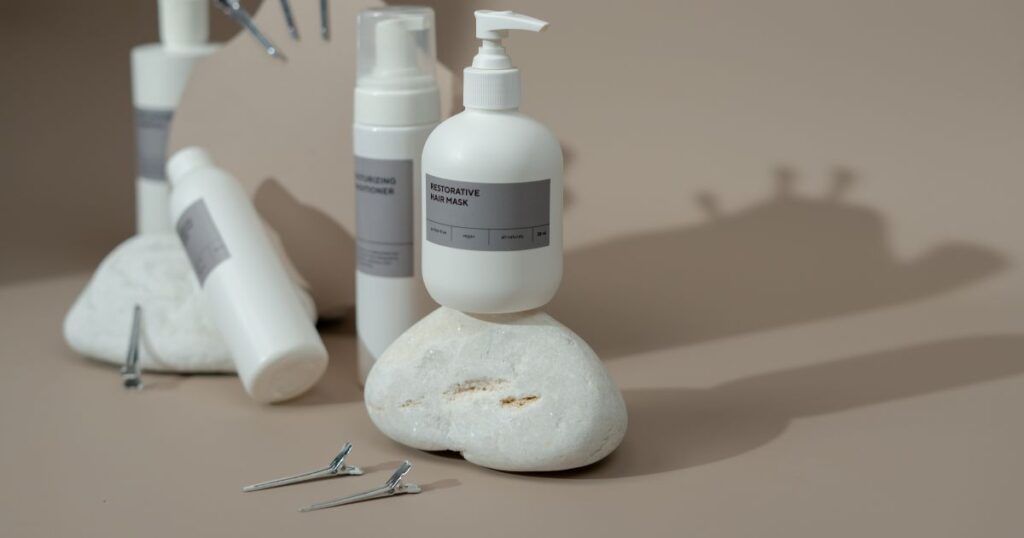
5.Protect Your Hair from UV Rays: Shield your hair from harmful ultraviolet (UV) rays by wearing a hat or using hair products with UV protection to prevent oxidative damage that can affect hair pigmentation.
6.Quit Smoking: Smoking can accelerate the graying process, so quitting smoking or avoiding secondhand smoke can help maintain natural hair color.
7.Be Gentle with Your Hair: Handle your hair gently when washing, drying, and styling to minimize breakage and damage to the hair shaft.
8.Avoid Chemical Hair Dyes: Reduce the use of chemical-based hair dyes, as frequent coloring can weaken hair and lead to increased white hair. Opt for natural or ammonia-free dyes instead.
9.Protect Against Environmental Pollutants: Minimize exposure to environmental pollutants and toxins that can contribute to premature graying by wearing a hat or using protective hair products.
10.Regular Scalp Massage: Massage your scalp regularly with gentle circular motions to improve blood circulation and stimulate the hair follicles, promoting healthy hair pigmentation.
11.Avoid Excessive Heat Styling: Limit the use of heat styling tools such as flat irons, curling irons, and blow dryers, as high temperatures can damage the hair cuticles and contribute to premature graying.
12.Protect Hair from Chlorine: Before swimming in chlorinated pools, wet your hair and apply a protective leave-in conditioner or coconut oil to create a barrier that helps minimize chlorine damage.
13.Get Regular Trims: Regular hair trims can help remove split ends and prevent further damage, promoting healthier hair growth and reducing the appearance of white hair.
14.Use a Wide-Toothed Comb: When detangling wet hair, use a wide-toothed comb to minimize breakage and prevent unnecessary stress on the hair strands.
15.Limit Alcohol Consumption: Excessive alcohol consumption can contribute to nutritional deficiencies that may affect hair health and pigmentation. Moderation is key for overall well-being, including hair health.
16.Get Sufficient Sleep: Aim for an adequate amount of sleep each night, as sleep deprivation can contribute to stress and disrupt the body’s natural processes, potentially affecting hair health.
17.Protect Hair from Harsh Weather: Shield your hair from extreme weather conditions such as excessive sun exposure, wind, and cold temperatures by wearing a hat or using protective hair products.
18.Avoid Overwashing: Wash your hair every 2-3 days rather than daily to prevent stripping away natural oils that help nourish and protect the hair strands.
19.Use Gentle Hair Care Products: Opt for gentle, sulfate-free shampoos and conditioners that are specifically formulated for your hair type to avoid unnecessary scalp and hair damage.
20.Consider Natural Hair Masks: Apply natural hair masks once a week to nourish and strengthen your hair. Ingredients like yogurt, eggs, honey, and aloe vera can help promote healthy hair pigmentation.
Remember, while these tips may help reduce white hair, individual results may vary. It’s essential to be patient and consistent with your hair care routine, and if you have any concerns, consult with a healthcare professional or a trichologist for personalized guidance.
Accepting White Hair
It’s important to remember that premature graying is a natural part of the aging process for some individuals. Embracing your natural hair color can be empowering and a celebration of your unique beauty. Developing self-confidence and self-acceptance can help you embrace the changes gracefully.
Conclusion
In conclusion, premature graying can occur due to various factors such as genetics, nutritional deficiencies, stress, medical conditions, and environmental influences. While it may not always be possible to prevent or reverse white hair at an early age, understanding these causes can help individuals make informed decisions about their hair care. Embracing natural aging, maintaining a healthy lifestyle, and seeking professional advice when needed are essential for promoting hair health and accepting the unique beauty of one’s hair color.
FAQs
Can stress alone cause white hair?
While stress is not the sole cause of white hair, chronic stress can contribute to premature graying by affecting hair health and melanin production.
Are there any natural remedies to prevent white hair?
Certain natural remedies, such as Ayurvedic herbs and essential oils, are believed to support hair pigmentation. However, their effectiveness may vary, and it is recommended to consult with a healthcare professional before trying any new remedies.
Can nutritional deficiencies be responsible for white hair?
Yes, deficiencies in certain nutrients like vitamin B12, vitamin E, copper, and iron can disrupt melanin production and contribute to premature graying. Maintaining a well-balanced diet and ensuring adequate intake of these nutrients can help maintain hair pigmentation.
Can white hair be reversed?
Reversing white hair is challenging, but certain treatments like hair dyes and color treatments can help restore or enhance hair pigmentation. Laser therapy is another option that shows promise in stimulating melanin production. However, it's important to consult with a professional and discuss the best approach for your specific situation.
Is premature graying hereditary?
Yes, genetics play a significant role in premature graying. If your parents or close relatives experienced premature graying, you may have a higher likelihood of experiencing it as well. Specific genes associated with premature graying can be inherited.
Can environmental factors cause white hair?
Yes, exposure to environmental factors like air pollution and chemical exposure can interfere with melanin production and contribute to premature graying. Protecting your hair from pollutants and minimizing the use of chemical-based hair products can help maintain hair pigmentation.
Is white hair a sign of poor health?
White hair alone is not necessarily an indicator of poor health. It is a natural part of the aging process for many individuals. However, certain medical conditions and nutritional deficiencies can contribute to premature graying, and addressing these underlying factors is important for overall health and well-being.
Can I pluck my white hair?
Plucking white hair is not recommended as it can potentially damage the hair follicle and lead to more hair loss. Additionally, plucking may not address the underlying causes of white hair and is unlikely to prevent the regrowth of new white hairs. It is best to explore other natural remedies and lifestyle changes to promote healthy hair pigmentation.
What foods prevent white hair?
Foods rich in vitamins, minerals, and antioxidants such as leafy green vegetables, berries, nuts, and seeds can help support hair health and potentially prevent white hair. Including these nutritious foods in your diet can contribute to maintaining natural hair color.

